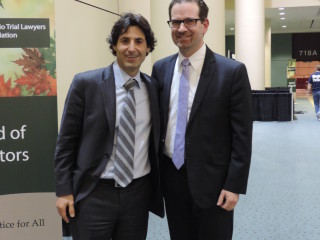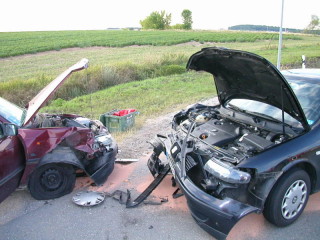This was a decision involving two motions brought by the defendants Durham Children’s Aid Society (“Durham CAS”) and Hawk Residential Care and Treatment Homes Inc. (“Hawk Homes”) pursuant to Rule 21.01(1)(b) to strike the plaintiff’s Statement of Claim as failing to disclose a reasonable cause of action.
Date Heard: May 25, 2018 | Full Decision [PDF]
The plaintiff in this case was a case worker employed by the defendant Hawk Homes. Hawk Homes was the owner of a treatment facility for emotionally disturbed youths. Hawk Homes was also the occupier of the premises on which the incident giving rise to the action took place. The minor defendant, D.L-F, did not participate in the motion and the Children’s Lawyer took no position.
The defendants advanced four arguments in support of their position:
- The duty of care that the Durham CAS and Hawk Homes allegedly owed to plaintiff cannot be recognized at law because of the competing and overriding duty owed by Durham CAS and Hawk Homes to a child in their care;
- The Child and Family Services Act, which governs the Durham CAS, does not impose the duties alleged to have been breached;
- Hawk Homes is not liable under the Occupiers’ Liability Act as the plaintiff willingly assumed the risks involved in working as a case worker for the minor defendant. In addition, nothing in the OLA relieves Hawk Homes from the duty of care owed to the minor defendant; and
- Hawk Homes enjoys immunity under section 4(3) of the Ministry of Community and Social Services Act.
Before addressing each argument, Justice Corkery, in citing the criteria laid out in the Supreme Court of Canada’s decision of Hunt v. Carey Canada, emphasized a motion to strike is a tool to be used with care. The Court’s approach must be generous and err on the side of permitting novel but arguable claims to proceed.
With respect to the first argument, the moving parties relied on the Supreme Court of Canada’s decision in Syl Alps Secure Treatment Centre v. B.D. to argue that there can be no competing duty of care where the interests of children are involved. Justice Corkery rejected this argument, noting that this was an incorrect reading of the decision in Syl Alps. Justice Corkery cited the Ontario Superior Court of Justice decision of A.D. v. T.G. with approval which held that Syl Alps speaks to immunity for certain professionals caring for children in special contexts. It does not, however, provide blanket immunity for all CAS-type organizations in all contexts. Justice Corkery went on to note that there was no authority to support the moving parties’ submission that a competing duty owed to a minor negates other common law duties of care (i.e. the duty of care owed by an employer to an employee).
Regarding the second argument of the moving parties, Justice Corkery held that Durham CAS must show that it is plain and obvious that the Child and Family Services Act does not impose the duties that were alleged to have been breached. He held that Durham CAS had not met this threshold.
With respect to the third argument of the moving parties, Justice Corkery emphasized that s. 4(1) of the Occupiers’ Liability Act (regarding risks willingly assumed) was to be read narrowly. Citing the Supreme Court of Canada’s decisions in Crocker v. Sundance Northwest Resorts Ltd. and Waldick v. Malcolm, Justice Corkery held that the mere fact the plaintiff was present on the premises in the course of her employment was not evidence that she had accepted the legal risks and waived any breach of the OLA. Justice Corkery held that it was not plain and obvious that the plaintiff had willingly assumed the physical and legal risks involved in working as a case worker.
With respect to the fourth argument, Hawk Homes had argued that section 4(3) of the Ministry of Community and Social Services Act ensured their immunity from this type of action. Section 4(3) of the Act reads:
No action or other proceeding for damages shall be instituted against the Deputy Minister or any other employee of the Ministry or anyone acting under his or her authority for any act done in good faith in the execution of his or her duty or for any alleged neglect or default in the execution in good faith of his or her duty.
Justice Corkery held that it was not plain and obvious that Hawk Homes fell within the immunity afforded to the “Deputy Minister or any other employee of the Ministry or anyone acting under his or her authority”.
Justice Corkery dismissed the motions of the moving parties.
Read the full decision [PDF]














